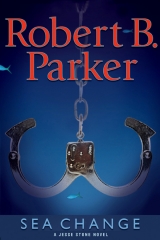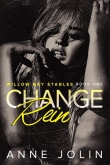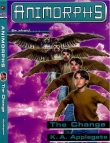
Текст книги "Sea Change"
Автор книги: Robert B. Parker
Жанр:
Крутой детектив
сообщить о нарушении
Текущая страница: 1 (всего у книги 10 страниц)

S E A
C H A N G E
T H E S P E N S E R N O V E L S
T H E J E S S E S T O N E N O V E L S
School Days
Stone Cold
Cold Service
Death in Paradise
Bad Business
Trouble in Paradise
Back Story
Night Passage
Widow’s Walk
Potshot
T H E S U N N Y R A N D A L L N O V E L S
Hugger Mugger
Melancholy Baby
Hush Money
Shrink Rap
Sudden Mischief
Perish Twice
Small Vices
Family Honor
Chance
Thin Air
A L S O B Y R O B E R T B . P A R K E R
Walking Shadow
Paper Doll
Appaloosa
Double Deuce
Double Play
Pastime
Gunman’s Rhapsody
Stardust
All Our Yesterdays
Playmates
A Year at the Races
(with Joan Parker)
Crimson Joy
Perchance to Dream
Pale Kings and Princes
Poodle Springs
Taming a Sea-Horse
(with Raymond Chandler)
A Catskill Eagle
Love and Glory
Valediction
Wilderness
The Widening Gyre
Three Weeks in Spring
Ceremony
(with Joan Parker)
A Savage Place
Training with Weights
Early Autumn
(with John R. Marsh)
Looking for Rachel Wallace
The Judas Goat
Promised Land
Mortal Stakes
God Save the Child
The Godwulf Manuscript
R O B E R T B . P A R K E R
G. P. P utnam’s Sons New Y ork
S E A
C H A N G E
g . p. p u t n a m ’ s s o n s
Publishers Since 1838
Published by the Penguin Group
Penguin Group (USA) Inc., 375 Hudson Street, New York, New York 10014, USA • Penguin Group (Canada), 90 Eglinton Avenue East, Suite 700, Toronto, Ontario M4P 2Y3, Canada (a division of Pearson Penguin Canada Inc.) • Penguin Books Ltd, 80 Strand, London WC2R 0RL, England • Penguin Ireland, 25 St Stephen’s Green, Dublin 2, Ireland (a division of Penguin Books Ltd) • Penguin Group (Australia), 250 Camberwell Road, Camberwell, Victoria 3124, Australia (a division of Pearson Australia Group Pty Ltd) • Penguin Books India Pvt Ltd, 11 Community Centre, Panscheel Park, New Delhi–110 017, India • Penguin Group (NZ), Cnr Airborne and Rosedale Roads, Albany, Auckland 1310, New Zealand (a division of Pearson New Zealand Ltd) • Penguin Books (South Africa) (Pty) Ltd, 24 Sturdee Avenue, Rosebank, Johannesburg 2196, South Africa Penguin Books Ltd, Registered Offices: 80 Strand, London, WC2R 0RL, England Copyright © 2005 by Robert B. Parker
All rights reserved. No part of this book may be reproduced, scanned, or distributed in any printed or electronic form without permission. Please do not participate in or encourage piracy of copyrighted materials in violation of the author’s rights. Purchase only authorized editions.
Library of Congress Cataloging-in-Publication Data Parker, Robert B., date.
Sea change / Robert B. Parker.
p. cm.
ISBN 0-7865-7713-4
1. Stone, Jesse (Fictitious character)—Fiction.
2. Police—Massachusetts—Fiction.
3. Police chiefs—Fiction.
4. Massachusetts—Fiction. I. Title.
PS3566.A686R33 2005
2004043150
813'.54—dc22
Book design by Meighan Cavanaugh
This is a work of fiction. Names, characters, places, and incidents either are the product of the author’s imagination or are used fictitiously, and any resemblance to actual persons, living or dead, businesses, companies, events, or locales is entirely coincidental.
For Joan il miglior fabbro
T hey were out of the harbor, off Stiles Island, in the weather. The day had turned bad. The sky was dark. The wind had gotten hard, and a thin rain slanted in front of the wind. They had drunk all the wine and talked most of the talk and now it was time to get home.
The person at the tiller said, “It feels as if there’s something foul-ing the centerboard, could you check it?”
Florence stood and leaned over and raised the centerboard. It felt free to her. The boat slid slightly sideways. She let the board down.
The boat stabilized, and came hard about, and the boom swung over the small cockpit and hit her a numbing blow in the chest and knocked the wind out of her. She pitched over the side into the black R O B E R T B . P A R K E R
water. It was painfully cold. She went under, gasping for breath, inhaling some of the water, choking on it. She struggled toward the surface. When she broke water she could see the sailboat turning and coming back for her. She struggled to breathe, to stay afloat, to focus.
In the far distance where Paradise rose up from the harbor she could see, on the top of the highest hill, the steeple of the oldest church in town. The sailboat was coming. She treaded water desperately. Only another minute at the most before the boat reached her. Hang on.
Hang on. Through the gray rain, she could see the little white bone of spray at the prow, the brass turnbuckle of the mast stay, the dark protective paint on the belly of the boat, as it leaned hard to the side, straining against the wind.
In a moment it would head up into the wind and sit, its sail luff-ing while she got hold of the rail. She was treading water. She was afloat. She was getting her breath. The boat didn’t head into the wind. It came straight on and the bow hit her in the chest and forced her under as the boat passed and sailed on. Barely conscious, she struggled to the surface. The boat was past her, sailing away. She tried to scream but she choked on the seawater. And then she went under and choked some more and lost consciousness.
Running before the wind with its sheet full out, the little sailboat headed home without her.
2
1
T he bouncer at the Dory was holding a wet towel against his bloody nose when Jesse
Stone arrived. Suitcase Simpson was with
him. Simpson was in uniform. Jesse was wearing jeans and a white short-sleeved oxford shirt. His gun was on his right hip and his badge was tucked in his shirt pocket so that the shield showed.
“You usually win these, Fran,” Jesse said to the bouncer.
The bouncer shrugged. His right eye was nearly closed.
“Too big for me, Jesse. You guys may have to shoot him.”
“We’ll see,” Jesse said.
Jesse pushed into the crowded bar. There was no noise. A R O B E R T B . P A R K E R
big man was standing on the bar drinking from a bottle of Wild Turkey. The bottle had a pour spout on it and he would hold it away from his open mouth and pour the whiskey in.
The bartender, whose name was Judy, had ducked out from behind the bar and was standing near the door. She had blonde hair in a ponytail and wore sneakers, shorts and a tank top.
“You call us?” Jesse said to her.
She nodded.
“He was drunk when he came in,” she said.
Jesse nodded.
“He made some remarks,” Judy said. “I told him I wouldn’t serve him. He made some more remarks, Fran tried to help . . .” She shrugged.
“You know who that is?” Simpson murmured in Jesse’s ear.
“Carl Radborn,” Jesse said. “All-Pro tackle. Shall we get his autograph?”
“Just letting you know,” Simpson said.
Jesse slid through the quiet crowd with Simpson behind him.
“Hey,” Radborn yelled. “Run for your fucking life, it’s the Paradise cops.”
Radborn was 6'5" and weighed more than 300 pounds.
Standing on the bar he seemed too big for the room. Jesse smiled at him.
“Should have brought an elephant gun,” Jesse said.
“Shit,” Radborn said and jumped down off the bar, still holding the whiskey bottle. “You know who I am?”
4
S E A C H A N G E
“I always love that question,” Jesse said. “Yeah, I know who you are. Jonathan Ogden knocked you down and stomped on your face when you played the Ravens last year.”
“Fuck you,” Radborn said.
“Oh,” Jesse said, “I hadn’t thought of it that way.”
A few people snickered.
“I don’t give a fuck. You a cop or what,” Radborn said.
“I’ll kick your ass and Fat Boy’s right here and now.”
Simpson reddened.
“A lot of that is muscle,” Jesse said.
“I play football,” Radborn said. “You play football, you’ll go with anybody. You ready to go?”
“Be better if you walked outside with us,” Jesse said.
“Fuck you.”
“I’ll take that as a no,” Jesse said. “Suit, gimme your stick.”
Simpson took the nightstick from the loop on his belt and handed it to Jesse.
“You think that fucking toothpick gonna matter?” Radborn said.
He was six inches taller than Jesse and more than 125
pounds heavier. Jesse took the stick from Simpson and with one motion hit Radborn in the testicles with it. Radborn gasped and doubled over. Jesse stepped around him quickly and hit him behind each knee with the stick. The legs col-lapsed. Radborn went to his knees. Jesse took a handful of hair and yanked him forward so that he was facedown on the floor. He glanced back at Simpson.
5
R O B E R T B . P A R K E R
“I played baseball,” Jesse said. “Cuff him, Dan-o.”
Simpson handcuffed Radborn. With help from the bouncer they got Radborn on his feet and stumbled him to the squad car and strapped him in. He’d been drinking all day. It was having its effect. He was half conscious, rocking in the backseat. He was so big that the squad car rocked with him. He bent forward suddenly against the seat belt and vomited. Some of the crowd had followed them outside. They applauded.
The two cops and the bouncer looked in at him for a moment without saying anything.
“Race Week,” the bouncer said.
“And it’s only the first day,” Jesse said.
Simpson got in to drive and Jesse sat up front beside him. They put the front windows down. Jesse looked back through the thick wire screening that separated them from Radborn in the backseat. As he looked, Radford threw up again.
“One of the perks of being chief,” Jesse said, “is you don’t have to clean the patrol car.”
“That be your driver’s job?” Simpson said.
“Yes,” Jesse said. “I believe so.”
6
2
J enn sat with Jesse outside, at a table on the deck of the Gray Gull restaurant, where
they could look at the harbor.
“Is it always like this during Race Week?” Jenn said.
“Has been since I arrived,” Jesse said.
“Just to watch a bunch of sailboats race?”
“And drink and eat and fornicate,” Jesse said, “and maybe snort a little something, bet some money. Maybe make a deal with somebody important. Big boats start arriving a month before. Lot of people come here for Race Week and never see a race.”
He was drinking iced tea. She had a daiquiri. She was R O B E R T B . P A R K E R
wearing Oakley wraparounds. The veranda looked east at the harbor, and the sun was very low in the west and entirely screened from them by the body of the restaurant. Jenn was a weather girl on a Boston television station and people occasionally recognized her. The glasses didn’t prevent that, and, he thought, that wasn’t why she wore them. She saw him looking at her and put her hand on top of his across the table.
“How we doing?” she said.
“So far, so good,” Jesse said.
The harbor was dense with racing sailboats, and beyond, in the deeper water near the point where the harbor opened onto the limitless ocean, the big yachts lay at anchor.
“Do they race those big ones?” Jenn said.
“Some of them,” Jesse said. “At the end of Race Week some of the yachts race from here to Virginia Beach. I’m told that the racing yachts are different than the yachts you just sail around in, but I’m not a seagoing guy, and I can’t tell you what the difference is.”
The waitress brought lobster salad for each of them and a glass of white wine for Jenn.
“It came in on the news wire that you had to arrest that huge football player yesterday,” Jenn said. “One of the sports guys told me.”
“He was drunk at the Dory,” Jesse said. “Broke the bouncer’s nose.”
“The sports guy said you subdued him with a nightstick.”
“I borrowed Suit’s,” Jesse said.
8
S E A C H A N G E
“I was with, what’s his name, Redford?”
“Radborn,” Jesse said.
“I was with Radborn at a charity thing,” Jenn said. “He’s enormous. Weren’t you intimidated? Even a little?”
“The bigger they are . . .” Jesse said.
“Oh God,” Jenn said. “Not that.”
Jesse smiled. “How about, ‘it’s not the size of the dog in the fight . . .’?”
“I’m serious. It interests me. You interest me.”
“If you’ve been a cop,” Jesse said, “especially a big city cop, like I was, after awhile you sort of expect to handle it.”
“But he’s twice your size.”
“It’s not really about the other guy,” Jesse said. “It’s about yourself.”
“So what’s your secret?”
Jesse grinned.
“Usually it’s backup.”
“And this time?”
“Well, Suit was there, but the guy was out of control and the place was crowded . . .”
“And he gave you attitude,” Jenn said.
“He did. So if you’re going to go, do it quick. You gotta get a guy like Radford right away or you’re going to have to shoot him.”
“What did you do?”
“I hit him in the balls with Suit’s stick.”
“Ouch,” Jenn said. “And that was it?”
“Essentially it was,” Jesse said.
9
R O B E R T B . P A R K E R
“I was talking to the bartender before you arrived,” Jenn said.
“Doc,” Jesse said.
“Yes, he said you didn’t press charges.”
Jesse drank some iced tea, and grinned at her as he put the glass down.
“This morning when he was sober with a deadly hangover, we gave him the choice: district court or clean the squad car.”
“Clean the squad car?”
“He puked in it.”
“Oh yuck,” Jenn said. “So much for dinner.”
“Don’t kid me, you’re about as queasy as a buzzard.”
“But much cuter,” Jenn said. “Did he do it?”
“He did,” Jesse said. “And we let him walk.”
“With his hangover,” Jenn said.
“Awful one, as far as I could tell.”
“You would know about those,” Jenn said.
“I would.”
They ate their lobster salad for a time. It was mediocre.
Jesse always thought the food at the Gray Gull was mediocre, but it was a handy place, and friendly, and had a great view of the harbor on a summer night sitting on the deck.
Jesse didn’t care much what he ate anyway.
When they finished supper they walked along the water-front for a stretch. The street were full of people, many of them drunk, some of them raucous. Jesse seemed not to notice them.
“I brought my stuff,” Jenn said.
1 0
S E A C H A N G E
“For an overnight?”
“Yes,” Jenn said. “I’m not on air until tomorrow after -
noon.”
“You bring it in the house?”
“Yes, I unpacked in the bedroom.”
“That sounds promising,” Jesse said.
“It is promising, but I need to walk off my supper first.”
“You never were a love-on-a-full-stomach girl,” Jesse said.
“I like things just right,” Jenn said.
“Sure,” Jesse said.
Away from the wharf the street life grew sparse. No more bars and restaurants, simply the old houses pressed up against the sidewalks. There were narrow streets, and brick sidewalks, bird’s-eye glass windows, weathered siding, and widow’s walks and weathervanes. It was dark and there weren’t many streetlights. Away from the Race Week crowds, the old town was dim and European. Jenn took Jesse’s hand as they walked.
“This time,” Jenn said, “things might be just right.”
“Maybe,” Jesse said. “If we’re careful.”
The street-side windows were lighted in many of the homes, and people sat, watching television, or reading something, or talking with someone, or drinking alone, behind the drawn curtains only inches away from Jesse and Jenn as they walked.
“How long since you’ve had a drink, Jesse?”
“Ten months and thirteen days,” Jesse said.
“Miss it?”
1 1
R O B E R T B . P A R K E R
“Yes.”
“Maybe, in time, you’ll get to where you can have a drink occasionally,” Jenn said. “You know, socially.”
“Maybe,” Jesse said.
“Maybe in awhile you and I can be more than, you know, one day at a time.”
“Maybe,” Jesse said.
In this neighborhood fewer lights were on. The streets seemed darker. Their footsteps were very clear in the silent sea-smelling air.
“You’ve slept with a lot of women, since we got divorced,”
Jenn said.
Jesse smiled in the darkness.
“No such thing as too many,” he said.
“There certainly is,” Jenn said, “and you know it.”
“I do know it.”
“There’s been a lot of men,” Jenn said. “For me.”
“Yes.”
“Does that bother you?”
“Yes.”
“Do you want to talk about it?”
Jesse shook his head.
“No,” he said. “Not yet.”
“Not yet?”
“Not until I understand it more.”
Jenn nodded.
“Do you still talk to Dix?”
“Sometimes.”
1 2
S E A C H A N G E
“Do you talk about that?”
“Sometimes,” Jesse said. “The women in my life bother you?”
“Not very much,” Jenn said. “Mostly I don’t think about them.”
In their walk they had made a slow loop along the water-front, up into the town, and back around down to the wa-terfront again to Jesse’s condominium. They stopped at Jesse’s front steps.
“Well,” Jenn said. “You are the man in my life now.”
“Yes,” Jesse said.
“You want to neck on the porch for a while?” Jenn said.
“Or go right on in and get serious?”
Jesse put his arms around her.
“No hurry,” he said.
“I love that in a man,” Jenn whispered, and put her face up and kissed him.
1 3
3
T he body moved gently, facedown, against the town dock, in the dark faintly oily water, among the broken crab shells, dead fish and fragments of Styrofoam which seemed to survive all adversity. It tossed easily on the small rounded swells of a powerboat wake. The seagulls were interested in the body, and below Jesse could see the shimmer of small fish.
Simpson said, “A woman, I think, wearing a dress.”
“Not proof positive, but we’ll assume,” Jesse said.
They looked at her as she eddied in the seaweed, and the body turned slightly so that the feet swung toward shore.
“Gotta get her out,” Jesse said.
S E A C H A N G E
“She been in awhile,” Simpson said. “You can see the bloat from here.”
“Get a tarp,” Jesse said, “and you and Arthur and Peter Perkins get her up on the dock and put the tarp over her.
Don’t want the sailors all puking before the race.”
“What about the cops?” Simpson said.
“Try not to,” Jesse said. “Bad for the department image.”
Jesse had seen enough floaters, and he had no need to see another one. Nor smell one. He looked at the small racing boats forming up and heading out to the harbor mouth where they would race off Stiles Island. Out by the end of Stiles Island he could see whitecaps. Be some bumpy races today. Behind him the coroner’s wagon arrived and the ME’s people got out a gurney and wheeled it down the ramp to the dock. One of them, a woman, squatted on her heels over the body and pulled back the canvas. Jesse saw all three of his cops look away. He smiled. The ME woman didn’t seem bothered, holding up the tarp, inspecting the body. When she was through she put the tarp back and jerked her thumb toward the wagon and they got the body on the gurney, and wheeled it up to the truck. A small crowd, mostly teenaged kids, watched the process. Occasionally one of them would giggle nervously.
“Anything interesting,” Jesse said to the woman.
“Need to get her on the table,” she said. “She’s too big a mess to tell much here.”
“ID?” Jesse said.
“Not yet.”
1 5
R O B E R T B . P A R K E R
“She in the water long?”
“Yes,” the woman said. “Looks like the crabs been at her.”
“Crabs?”
“Un-huh.”
“Means she was on the bottom,” Jesse said.
“Or at the water’s edge.”
Jesse nodded. “Anything else?” he said.
She shook her head.
“We’ll know more after we get her into the shop,” she said.
“Mind if I send my evidence specialist along with you?”
Jesse said.
“Hell no,” the woman smiled, “we’ll show him some stuff.”
“Oh, Jesus,” Peter Perkins said.
Simpson watched the van pull away. He was very fair, with a round face and pink cheeks. Now there was no pink.
“You see something like that,” Simpson said, “chewed up, full of bloat, and stinking, makes you wonder about life and death, you know?”
Jesse nodded.
“I mean,” Simpson said, “it’s hard to imagine something like that going to heaven.”
“The body don’t go, anyway,” Arthur said.
“Yeah, I know.”
The three men didn’t say anything.
“You ever think about stuff like that, Jesse?” Simpson said.
1 6
S E A C H A N G E
Jesse nodded.
“So whaddya think?”
Jesse smiled.
“I think I don’t know,” he said.
“That’s it?” Simpson said.
“Yeah,” Jesse said. “I don’t know doesn’t mean there’s no afterlife. Doesn’t mean there is. Means, I don’t know. ”
“That enough for you, Jesse?”
“Kind of has to be. Universe is too big and complicated for me to understand.”
“That’s where faith comes in,” Arthur said.
“If it can,” Jesse said.
“Can for me,” Arthur said.
Jesse nodded.
“Whatever works,” he said. “Let’s see if we can find out who our floater was.”
1 7
4
J esse was leaning on the front desk in Paradise Police Headquarters reading the ME’s report on the floater. Molly was working
the phones. It was only 8:40 in the morning and the phones were quiet.
“You think she came off one of the yachts?” Molly said.
Jesse smiled. Molly always looked too small for the gun belt. In fact there wasn’t all that much that Molly was too small for. She was dark-haired and cute, full of curiosity and absolute resolve.
“Only if they got here before Race Week,” Jesse said. “ME
says she’s been in the water awhile.”
S E A C H A N G E
“Any signs of trauma?”
“Nope, but it’s pretty hard to tell. Crab, ah, markings indicate she was probably on the bottom, which might suggest she was weighted, and decomposition, tidal movement, whatever, pulled her loose and sent her up. Or she could just have been in shallow water.”
“Could be lobster markings,” Molly said.
“I’ll keep it in mind,” Jesse said. “Next time I’m ordering dinner at the Gray Gull.”
He heard himself say Gray Gull the way locals did, as if it were one word, with the stress on gray, not gull. I been here awhile, Jesse thought. I’m beginning to be local.
“It couldn’t be gulls?” Molly said.
“No.”
“How do they know?”
“They know,” Jesse said. “There’s evidence of blunt trauma on her body, but nothing that couldn’t have come from being rolled against rocks by the surf.”
“Oh. Well if she did come off a yacht, it’s strange no one has reported her missing.”
“No one seems to have reported her missing, yacht or no yacht,” Jesse said.
“We got five missing persons in the Northeast that could be her,” Molly said. “Except none of the dental IDs match.”
Jesse wore blue jeans and sneakers and a short-sleeved white police chief shirt, with the badge pinned to the shirt pocket. He carried the snub-nosed .38 that he’d brought with him from L.A. The issue gun, a nine-millimeter semiauto-1 9
R O B E R T B . P A R K E R
matic, she knew, was in the right-hand bottom drawer of his desk. His hair was cut short. He was tanned, and, Molly always noticed this about him, while he wasn’t a particularly big man he seemed very strong, as if his center were muscular.
The phone rang and Molly took it and said, “Yes ma’am.
We’ll have someone check right on it.” She wrote nothing down, and when she hung up she took no further action.
“Mrs. Billups?” Jesse said.
Molly nodded.
“Says there’s a man she doesn’t recognize walking past her house. He looks sinister.”
“How many is that so far this month?”
“Four,” Molly said.
“And this year?”
“Oh God,” Molly said, “infinity.”
“Mrs. Billups hasn’t got much else to occupy her,” Jesse said. “Who’s on patrol?”
“Suit.”
“Have him drive slowly past her house,” Jesse said.
“There’s nothing there, Jesse.”
“I know, and you know. But Mrs. Billups doesn’t know.”
“You are awful tenderhearted,” Molly said, “for a guy who banged Carl Radborn in the balls with a stick.”
“She’ll peek out the window when she sees the patrol car,” Jesse said. “Have Suit give her a little wave. Maybe a thumbs-up.”
2 0
S E A C H A N G E
Molly shook her head in slow disapproval, but she turned as she did so, and called Simpson on the radio.
“Go do another Mrs. Billups drive-by,” she said.
“Oh shit, Molly, that old biddy sees things every day.”
Jesse leaned into the microphone.
He said, “Serve and protect, Suit.”
There was silence for a minute, then Simpson said, “Aye, aye, skipper.”
Jesse went into the squad room in back and got two coffees and brought one in for Molly.
“If you’re missing from a town or a city, people might not notice right away,” Jesse said. “But a yacht?”
“So she’s probably not off one of the yachts.”
“Or, if she is, people don’t wish it known,” Jesse said.
“Which would mean that someone murdered her.”
“Or that someone doesn’t want anyone to know she was on the yacht.”
Molly nodded.
“Like somebody else’s wife,” she said.
“Or a hooker, or a juror in a pending civil trial, or something neither of us can think of.”
“There’s nothing neither of us can think of,” Molly said.
“Except who the floater is.”
“ME can’t give you anything?”
“Sure they can,” Jesse said.
He looked at the ME’s initial report.
“Floater was about thirty-five. Alive she was about five-2 1
R O B E R T B . P A R K E R
seven, probably weighed a hundred and thirty pounds. Brown eyes, natural brunette. She was wearing an expensive dress and silk underwear when she died. She had been drinking.
She showed traces of cocaine, and she was a smoker. Her breasts had been enhanced. She was alive when she went in the water. She was not a virgin.”
“No kidding.”
“Just running down the list, Moll,” Jesse said. “She had never had children.”
“We could start checking with plastic surgeons,” Molly said. “See if any enhancement patients are missing.”
“If it were done by a plastic surgeon,” Jesse said. “Any MD can do this kind of surgery.”
“But most intelligent people wouldn’t go to an allergist or somebody,” Molly said. “Would you?”
“For breast enhancement?” Jesse said.
“You know what I mean,” Molly said.
Another call came in. Molly answered and listened and wrote down an address.
“Okay, Mr. Bradley,” she said. “I’ll have an officer there in a few minutes. Call back if there’s any problem. And stay away from the animal.”
“Rabid animal?” Jesse said.
“Skunk. Guy working on a roof up on Sterling Circle says it’s staggering and walking in circles in the street. He was on his cell phone.”
“Suit should have saved Mrs. Billups by now. Have him go up and shoot the skunk.”
2 2
S E A C H A N G E
“What if it’s not really rabid?” Molly said.
“Family can sue us.”
Molly called Simpson. When she was through she turned back to Jesse.
“Do people like urologists really do plastic surgery?”
“They may legally do so,” Jesse said. “Some people don’t know one doctor from another. In the white coat they all look the same.”
“A woman wearing silk underwear would know,” Molly said.
Jesse grinned.
“Depends who bought the underwear,” he said.
“Still, odds are it would be a plastic surgeon. I can make some calls.”
“Sure,” Jesse said. “If we’re lucky, maybe she did them around here.”
“Of course,” Molly said. “She could have driven here from Grand Junction, Colorado, and parked on the Neck someplace and jumped in.”
“Except we haven’t found any abandoned vehicles,” Jesse said.
“Or someone was with her and threw her in and drove away.”
“Or she’s a space alien,” Jesse said.
“Or, just shut up,” Molly said.
“I am the chief law enforcement officer of Paradise, Massachusetts,” Jesse said. “And your chief. Surely you can be more respectful than that.”
2 3
R O B E R T B . P A R K E R
“Of course,” Molly said. “I’m sorry . . . shut up, sir.”
“Thank you.”
“Are they all through with her?” Molly said.
“The coroner? No, this is a preliminary report. They’re still poking around.”
“Ick,” Molly said.
“Cops don’t say ‘ick.’ ”
Molly laughed and leaned over the desk and kissed Jesse on the forehead.
“Do cops do that?” Molly said.
“Oh yeah,” Jesse said, “most of them.”
The phone rang again and Molly answered, “Paradise Police,” while Jesse took the coroner’s report back to his office.
2 4
5
D ix always looked so clean, Jesse thought. His white shirts were always brilliant white.
His head gleamed as if he had just shaved it, and his face glistened with aftershave.
“Jenn asked me the other day if it bothered me about her being with other men.”
Dix nodded. He sat with his elbows on the arms of his chair, his hands clasped chest high. They were big square competent hands.
“I said it did.”
“You wanna talk about that?” Dix said.
“Yes.”
R O B E R T B . P A R K E R
“Whaddya want to say?”
“I, well, I mean I hate it,” Jesse said. “But that doesn’t seem too weird.”
“Hate it that she was with other men?”
“Them having sex,” Jesse said.
Dix nodded. Neither of them said anything. Dix’s desk was completely empty except for a phone and a calendar pad.
His degrees were on the wall, and there was a couch, which Jesse had never used, against the wall behind him.
“Does it bother you to think of them talking intimately, laughing together, sharing a joke, enjoying a meal, watching a ball game?”
“Sure. Isn’t it, to use a nice shrink word, appropriate, to be jealous when your wife’s cheating on you?” Jesse said.
“It is certainly human,” Dix said. “Is it with the same in-tensity that you think of her having sex?”
“No.”
“Is she cheating on you now?”
“No. Right now we’re good.”
“So?” Dix said.
Jesse started to speak and stopped and sat. Dix was quiet.
“I can’t seem to let it go,” Jesse said.
“What part can’t you let go of?” Dix said.
“Her having sex. I think about it. I imagine it. I can’t get rid of it when I’m with her.”
Dix waited, his head cocked slightly. Jesse was staring at his hands, which were clasped in front of him. After a time he looked up at Dix.
2 6
S E A C H A N G E
“It’s like, almost, like I maybe don’t want to let it go.”
Dix’s face changed just enough for Jesse to see that he approved of the direction the conversation was taking.
“What the hell do I get out of it?” Jesse said.
“Something,” Dix said. “Or you’d let it go.”
“Yes.”
Again they were silent. The hushed whir of the air conditioning was the only sound in the office. It was hard to imagine Dix being hot, or tired, or puzzled, Jesse thought. No one could put up with silence like Dix could. It was like his natural element. Jesse felt winded. He took in another big breath.
“You went out with a lot of other women after your separation and divorce,” Dix said.
“Sure.”
“Did you imagine them with other men?”
“Not really,” Jesse said. “I love Jenn. I liked everyone I slept with. But I never loved them the way I love Jenn.”
“Therefore?” Dix said.
“Therefore I didn’t care who else they’d slept with,” Jesse said.
“Excuse the cliché,” Dix said. “But isn’t that more about you, about how you felt, than it is about Jenn or the other women?”
Jesse looked blankly at Dix for a moment.
“What the hell is wrong with me?” Jesse said.
“You’re human,” Dix said. “A common ailment.”
2 7
6
W hen Jesse got back to the station Jenn was in his office, sitting at his desk with the swivel chair tilted back, her legs
crossed under her short skirt, showing a lot of thigh. Jesse felt the little pinch of desire in his stomach. He always felt it when he saw her. It was so consistently a part of being with her that he just thought of it as part of the nature of things.








